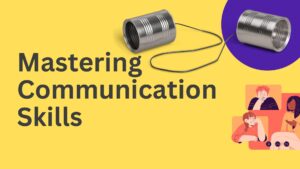Insurance Tips
Insurance Tips: A Simple Guide to Making the Best Choices
Insurance is an important part of financial planning. It acts as a safety net, protecting you and your loved ones from unexpected emergencies and losses. Yet, many people find insurance confusing and challenging to understand. In this article, we’ll walk you through some essential insurance tips that can help you make smart decisions and get the right coverage for your needs.
1. Understand the Types of Insurance
The first step in choosing the right insurance is knowing what’s available. Here are some common types:
- Life Insurance: Provides financial support for your loved ones if you pass away.
- Health Insurance: Covers medical expenses for illnesses, surgeries, or treatments.
- Auto Insurance: Protects you from losses due to accidents, theft, or damage to your car.
- Homeowners/Renters Insurance: Covers damage or loss related to your home and belongings.
- Disability Insurance: Provides income if you’re unable to work due to an injury or illness.
Knowing the different options will help you pick the right policies for your life stage and responsibilities.
2. Assess Your Needs
Each person has unique needs when it comes to insurance. Think about your:
- Family responsibilities
- Debts and loans
- Health and medical conditions
- Home and property
- Lifestyle and financial priorities
For example, if you have a young family, life insurance becomes a priority. If you’re renting an apartment, you might consider renters insurance.
3. Compare Policies from Multiple Providers
It’s always a good idea to compare quotes from several insurance companies. Prices can vary, and coverage can differ greatly. Take the time to review:
- Premium amounts
- Policy benefits and exclusions
- Claim process and customer reviews
Comparing policies ensures you get the best value for your money and the right coverage.
4. Understand the Terms and Conditions
Insurance policies often contain technical terms that can be confusing. Always read the fine print and ask questions if needed. Be sure you understand:
- What is covered and what is excluded
- The cost of the premium and how it may change
- The claim process and required documents
- The renewal and cancellation policies
If something doesn’t make sense, ask your insurance agent to clarify it.
5. Choose Adequate Coverage
While it might be tempting to pick the cheapest plan, it’s vital to have adequate coverage. Underinsuring yourself can lead to significant financial losses in case of an accident or medical emergency. Make sure your coverage is enough to cover potential expenses, debts, and long-term needs.
6. Review and Update Regularly
Life changes quickly — and so should your insurance. Getting married, having a child, buying a home, or starting a business are all reasons to review your policies. Make sure your coverage reflects your current circumstances and provides the protection you need.
7. Maintain a Good Credit Score
In many cases, your credit score can affect the cost of your insurance. Maintaining a strong credit rating can help you get lower premiums, making insurance more affordable.
8. Consult a Professional
If you’re overwhelmed by insurance options or simply want expert guidance, consider consulting an insurance advisor. They can help you assess your needs, compare policies, and make informed decisions about the best coverage for your situation.
Final Thoughts
Having the right insurance is one of the best ways to protect your financial future and secure peace of mind. By understanding the types of insurance available, assessing your needs, and making well-informed choices, you can build a strong safety net for yourself and your loved ones. Remember: it’s worth the investment to have the right protection when you need it the most.






































































1 comment